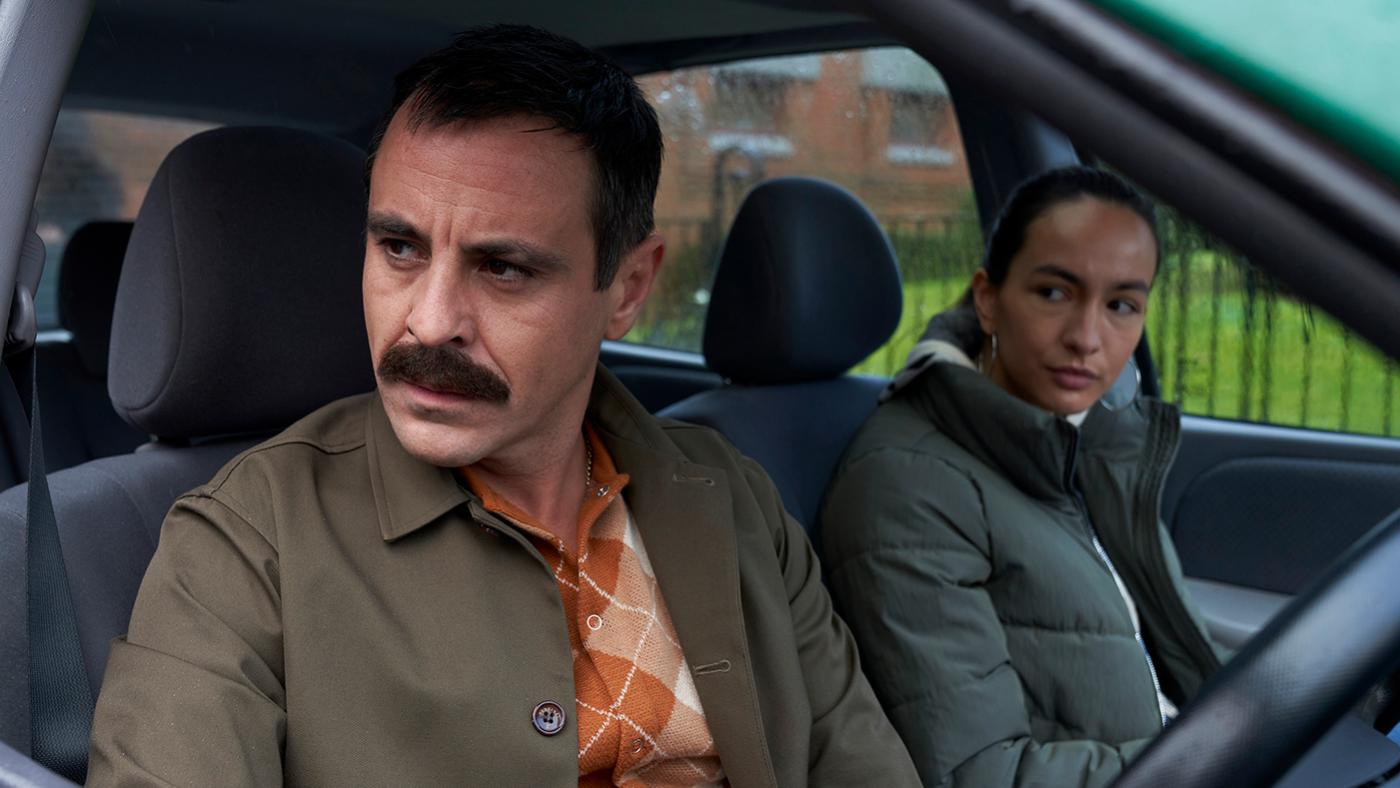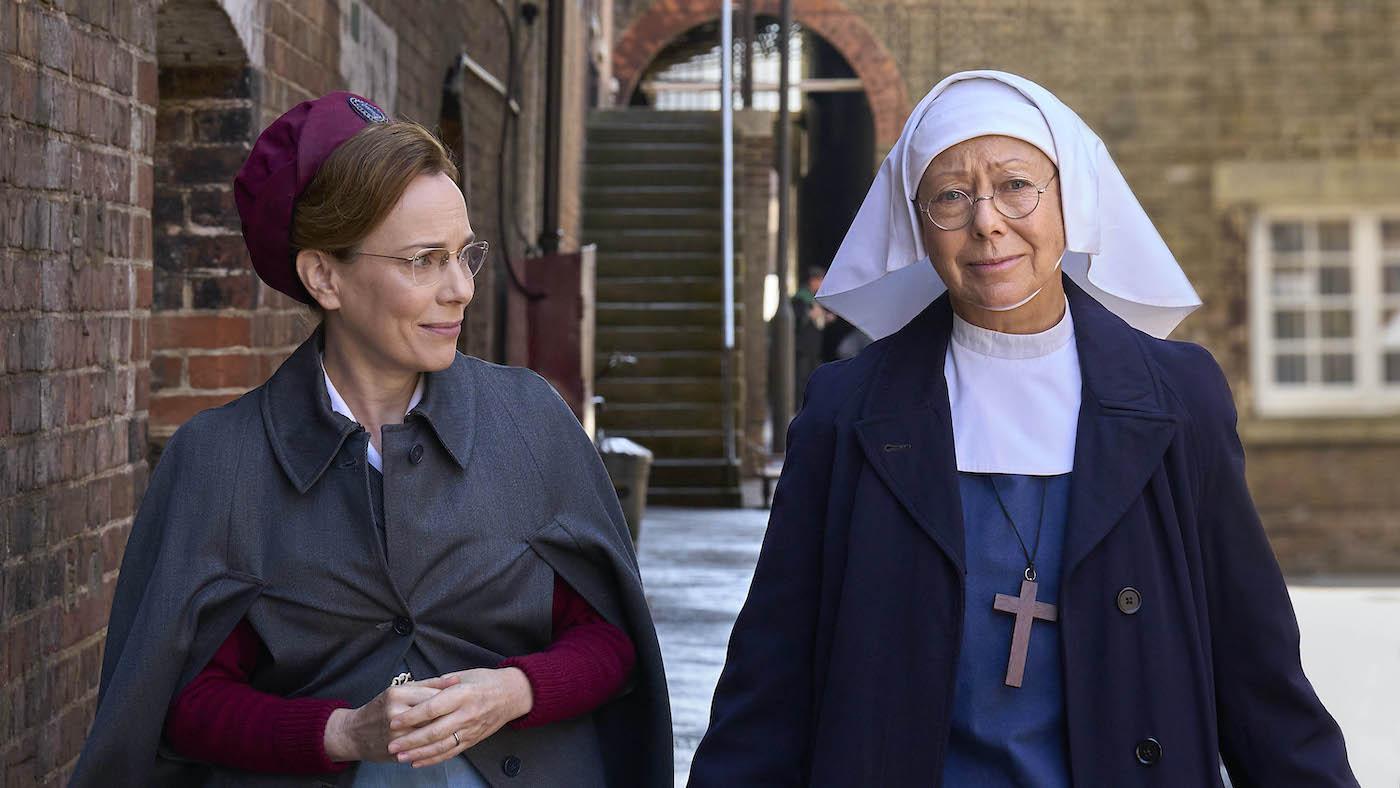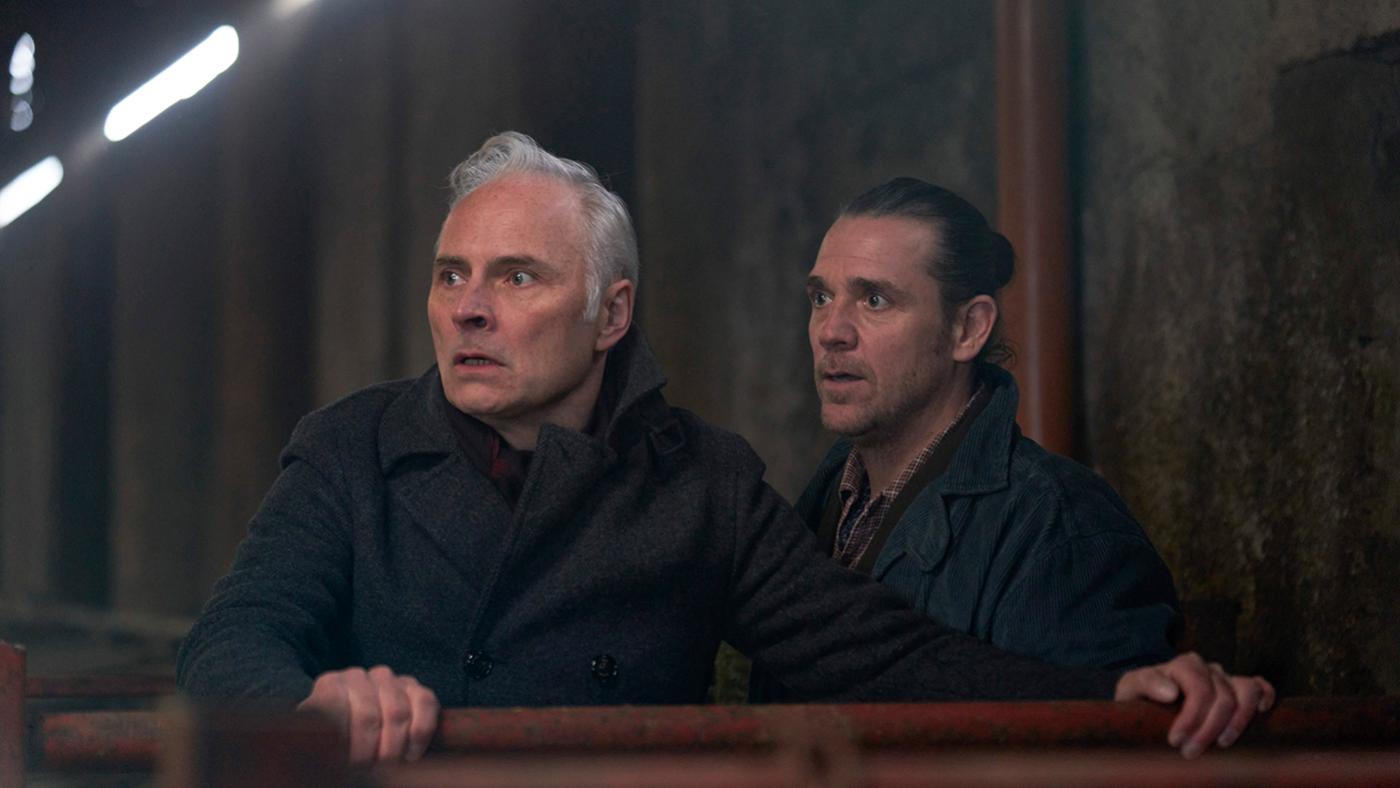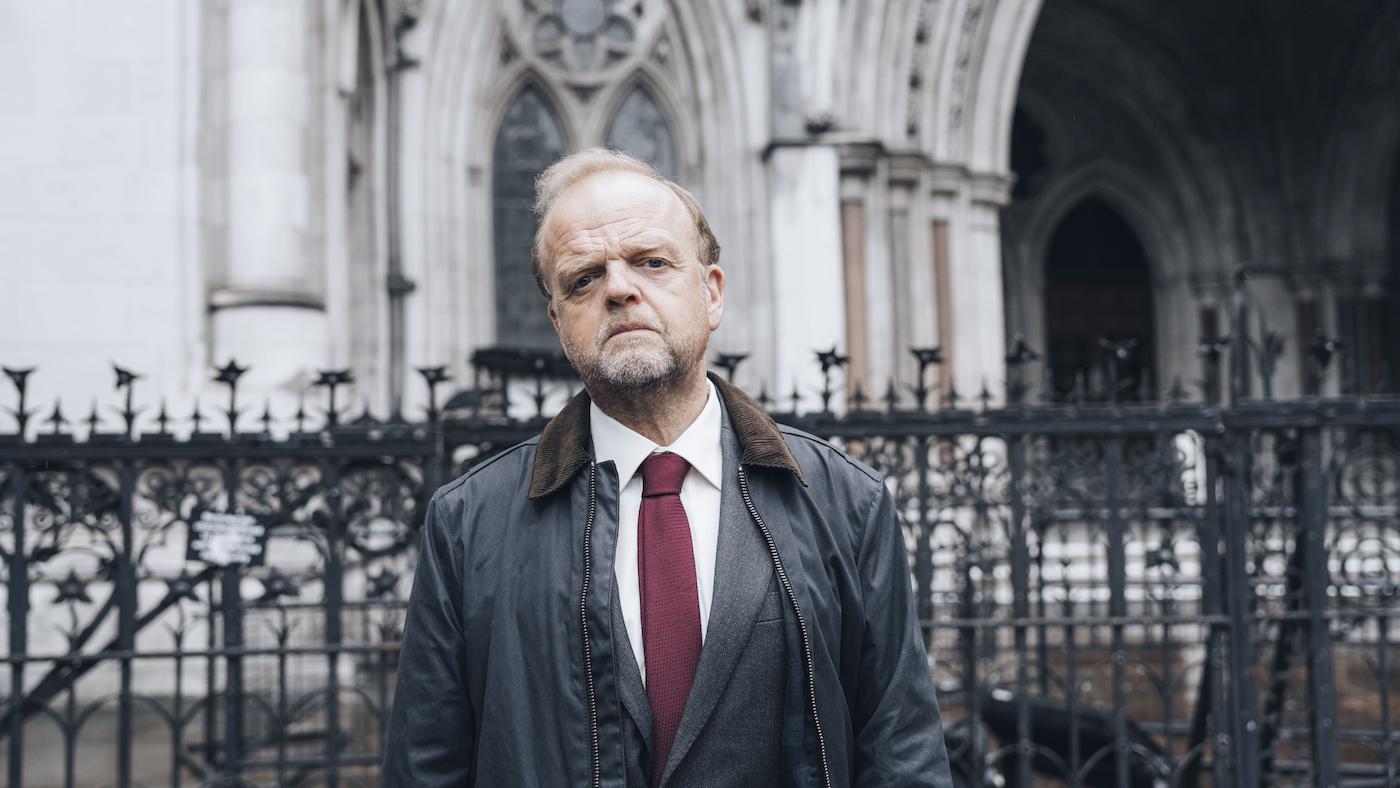'Little Bird' Recap: Episode 1
Daniel Hautzinger
October 22, 2023
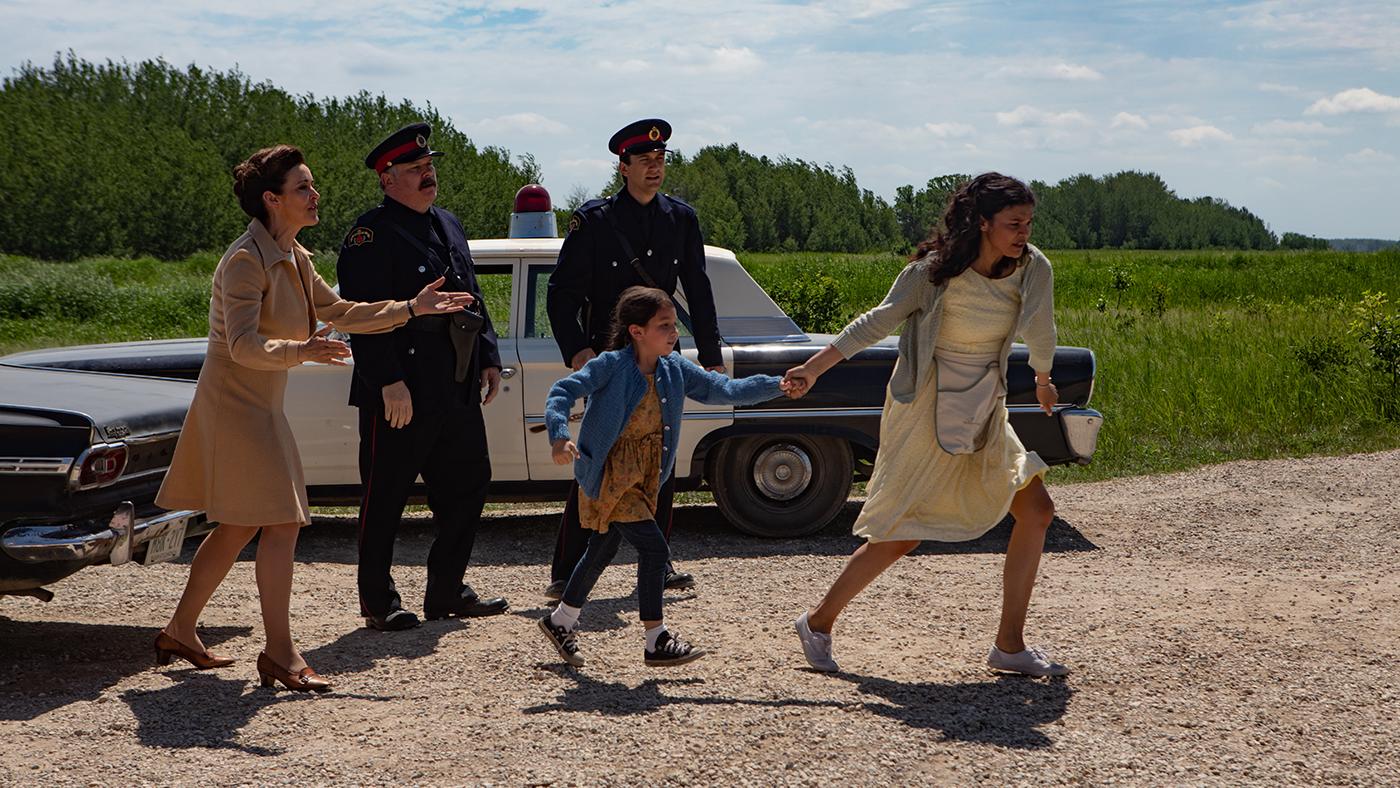
Little Bird airs Sundays at 6:00 pm on WTTW and is available to stream via the PBS app and at wttw.com. Recap the following episode.
Keep up with your favorite dramas and mysteries by signing up for our newsletter, Dramalogue.
Bezhig Little Bird’s life on the Long Pine Reserve in Saskatchewan may lack some things – electricity, plumbing, a phone – but it seems happy. It is 1968, and she lives with her parents and three siblings, all sleeping together in one bed in a small, isolated house. Milk comes from cans stored in a half-buried jug in the yard, and entertainment comes from the vast fields surrounding the house.
Her older brother Leo is nervous, because he’s about to head off to hunt deer for the first time with his father, grandfather, and another man. The other man won’t be hunting on the reserve much longer; he’s taken a payout of 2,000 dollars to move away. Leo is worried he won’t nab a deer.
Bezhig’s younger sister, Dora, has a fever and cough, as her Auntie Brigit notes while dropping off fish for the family. So Bezhig’s mother Patricia sends Bezhig and her brother Niizh away to fetch some things and play outside in order to get them out of her way.
While the children walk along the side of a road, a police car drives past. Niizh aims his slingshot at it and fires over Bezhig’s shouted objection. The car stops and the cops get out to chase the fleeing children. They grab them and haul them to the car to show them the crack Niizh caused in its window before thrusting them into the back seat.
Eighteen years later, in Montreal, Esther Rosenblum is the focus of a catered engagement party thrown by her fiancé David’s parents in their large, showy house. Esther is the adopted daughter of two lawyers who have divorced; her mother Golda doesn’t even want to talk to her father. In fact, she doesn’t want to talk to anyone at the party, despite Esther’s gentle entreaties. Golda finds most of the people there boring and uncultured.
Esther herself is excelling in her first year of law school, while David is a resident at a hospital. He pulls her aside to ask her how she’s doing, knowing she’s lying when she says fine. She forgot to put on one of her earrings. They engage in some passionate kissing and pawing before returning to the party.
They are introduced for speeches by Esther’s foul-mouthed best friend Hildie. David says Esther makes him truly happy. Esther calls him her bashert: her destiny, the other half of her soul. Then she shifts to talk about her mother, whose whole family, including her sister Esther, died in Poland during the Holocaust when she was 12. Esther and David can start a new generation out of that terror.
Later, Esther overhears David’s mother, sister, and another woman talking about Esther being different. David’s mother has already continually emphasized Esther’s coloring, calling her beautiful and “exotic.” Now she worries about David marrying a First Nations adoptee. But Esther is one of the good ones, the other woman says; her cousin adopted one who is now into drugs.
Esther walks into the room and drops a glass. David appears, but Esther quickly finds her mom and asks to leave. They rush out of the house.
Back at home, Golda tells Esther that David’s parents are idiots, always have been, but that David is not his mother. She urges Esther to pick up the phone when David calls, but Esther heads wordlessly to her room and lies down on her bed.
Eighteen years earlier, back in Saskatchewan, the police bring Bezhig and Niizh to meet with two women from Child Protective Services. Adele is a new graduate in social work who has just started the job; Jeannie has clearly been doing it for a while. She asks the children where their mother is.
The police and the women then go to the Little Bird house with the two children. Patricia sees and hears them coming, and hides Dora in a crawl space under the table, telling her not to make a noise until Patricia lets her out, just like they practiced. Her husband and son Leo are still away hunting.
Patricia then rushes outside to wrest Bezhig from the police, pick her up, and sprint across the fields. The police chase her, push her over, and grab Bezhig to put her back in the car with her brother. Adele is troubled and upset by the whole display.
Jeannie then interrogates Patricia about the quality of the children’s lives while Patricia sobs. No one on the reservation has electricity or plumbing, Patricia tells her. The kids get enough food, and clean water from rain barrels. There’s always someone around to watch them, be it an auntie or their brother Leo.
Adele quietly tries to defend Patricia, but Jeannie decides that she is not a “fit mother.” There’s a lack of food and clean water and general poor conditions, Jeannie decides, plus evidence of neglect. She teaches Adele how to fill out the form to separate the children from their parents and send them off for adoption, under a policy known as the Sixties Scoop that was in place between the 1960s and 1980s in Canada. (Little Bird is based on a true story.)
Jeannie tells Patricia they will be “apprehending” her children. Adele softly apologizes to Patricia.
As they’re leaving, Dora coughs. The police find her in her hiding place and put her in the car with her siblings. They restrain a wailing Patricia as the Child Protective Services women drive away with her children.
The kids are unceremoniously dropped off at a “receiving centre” without any paperwork or information, not even their names. Jeannie drives off less than a minute after the kids get out of the car.
That night, Dora coughs and cries as the children go to bed. Bezhig goes to comfort her, but a worker stops her and orders her back to her own bed. Dora will stop crying eventually, the woman says.
Bezhig herself silently cries in bed – upset just like her future self, Esther, in Montreal eighteen years later.

